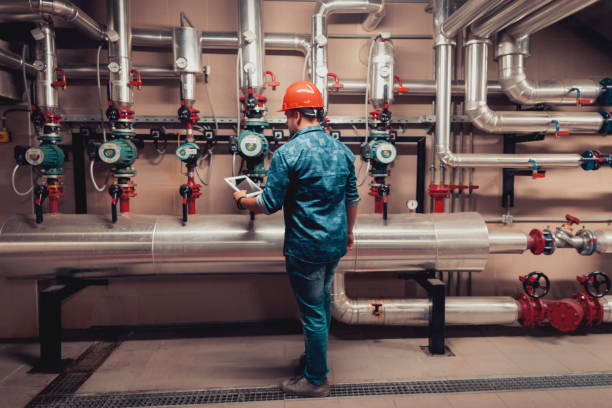Plumbing is a crucial system in every residential, commercial, and industrial space. It involves the installation, maintenance, and repair of water systems, drainage, and fixtures. Whether you’re a homeowner looking to fix a dripping faucet or a professional building a plumbing services network from scratch, understanding the basics of plumbing is essential. This article will dive deep into the importance, components, and benefits of effective plumbing systems.
The Importance of Plumbing in Daily Life
A well-functioning plumbing system ensures that clean water is delivered efficiently while waste is removed hygienically. It’s hard to imagine modern living without plumbing, as it supports essential activities like cooking, cleaning, and bathing. Moreover, proper plumbing protects public health by preventing waterborne diseases and maintaining sanitary conditions.
Plumbing isn’t just about convenience; it’s also about sustainability. Modern plumbing systems are designed to conserve water, reduce waste, and minimize energy consumption. From low-flow faucets to energy-efficient water heaters, innovations in plumbing have significantly impacted resource conservation efforts worldwide.
Key Components of a Plumbing System
A plumbing system consists of several interconnected components working together seamlessly. These include:
- Pipes and Fittings: The backbone of any plumbing system, pipes transport water to and from different areas. Common materials include copper, PVC, and PEX.
- Fixtures: These are the visible elements like faucets, sinks, toilets, and showers. They are crucial for daily interactions with the plumbing system.
- Valves: Valves control water flow, ensuring proper pressure and allowing users to shut off water during maintenance or emergencies.
- Water Heaters: Essential for supplying hot water, water heaters come in various types, including tank and tankless models.
- Drainage Systems: These ensure waste water is removed efficiently and prevent blockages that can disrupt daily activities.
Common Plumbing Issues and Their Solutions
Despite its importance, plumbing systems are prone to issues that can disrupt daily life. Here are some common problems and tips on addressing them:
- Leaky Faucets: A dripping faucet not only wastes water but also increases utility bills. Replacing worn-out washers or seals can fix this issue.
- Clogged Drains: Hair, grease, and debris can block drains, causing slow water flow. Using a plunger or drain snake often solves the problem.
- Low Water Pressure: Mineral buildup or leaks in pipes can lead to reduced water pressure. Cleaning aerators or fixing leaks can restore normal flow.
- Running Toilets: A faulty flapper or fill valve is usually the culprit. Replacing these components can stop water wastage.
- Burst Pipes: Freezing temperatures can cause pipes to burst. Insulating pipes and maintaining a steady flow of water can prevent this issue.
Benefits of Professional Plumbing Services
While minor issues can often be resolved with DIY methods, professional plumbing services offer several advantages:
- Expertise and Experience: Licensed plumbers have the knowledge to identify and fix complex problems effectively.
- Time-Saving: Professionals complete tasks faster, saving you time and effort.
- Long-Term Solutions: High-quality repairs and installations ensure durability, reducing the likelihood of recurring issues.
- Safety Assurance: Incorrectly installed plumbing systems can pose risks, such as water contamination or leaks. Professionals ensure safety compliance.
- Advanced Tools: Plumbers use specialized equipment to diagnose and resolve problems efficiently.
Plumbing Maintenance Tips for Homeowners
Regular maintenance can prevent costly repairs and extend the life of your plumbing system. Here are some tips:
- Inspect for Leaks: Check faucets, pipes, and fixtures regularly for leaks and address them promptly.
- Clean Drains: Avoid pouring grease or oil down the drain and use strainers to catch debris.
- Monitor Water Pressure: Invest in a pressure gauge to ensure water pressure stays within recommended levels.
- Service Water Heaters: Flush your water heater annually to remove sediment and maintain efficiency.
- Winterize Pipes: During colder months, insulate exposed pipes to prevent freezing and bursting.
Future Trends in Plumbing
The plumbing industry is evolving with advancements in technology and a growing focus on sustainability. Smart plumbing systems equipped with sensors and IoT technology allow homeowners to monitor water usage and detect leaks remotely. Additionally, eco-friendly plumbing solutions, such as rainwater harvesting systems and greywater recycling, are becoming increasingly popular.
Another significant trend is the use of durable, lightweight materials like PEX pipes, which are easier to install and maintain. These innovations are not only improving efficiency but also making plumbing more accessible to homeowners and professionals alike.
Conclusion
Indispensable aspect of modern living, ensuring access to clean water and efficient waste disposal. By understanding its components, common issues, and maintenance practices, homeowners can take better care of their systems and avoid unnecessary expenses. For complex tasks, professional plumbing services remain the best option, offering expertise and lasting solutions.
As the industry continues to innovate, embracing new technologies and sustainable practices will further enhance plumbing systems, making them more efficient, reliable, and eco-friendly. Whether you’re tackling a minor repair or planning a major installation, a solid understanding of plumbing will always prove invaluable.



